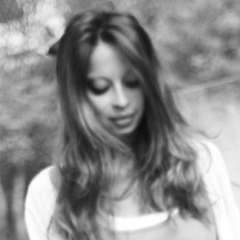Bridging new and old, the young graduates of Teatro alla Scala's Academy joined seasoned Italian opera legends for an "Academy Project" performance of Gioachino Rossini's Il barbiere di Siviglia in Jean-Pierre Ponnelle's 46-year-old staging. Guided by the grace and savoir faire of stage veterans Leo Nucci and Ruggero Raimondi, it proved that meat-and-potato repertory classics can withstand the rigors of time when honored with kinetic chemistry, modern stage language, and fresh voices.
Under Maestro Massimo Zanetti's baton, the Teatro alla Scala Academy Orchestra captured the absurdity and frenzy of Rossini’s two-act comedy that premiered in February 1816 in Rome. Quicksilver tempi were ornamented with slancio woodwinds, cranky bass and baggy strings, like in the cavorting concertati di stupore Act I finale “Fredda ed immobile”. James Vaughan's fortepiano polished Cesare Sterbini’s libretto lines sourced from Beaumarchais' 1775 play of the same title, offloading some recitatives and Count Almaviva's “Cessa di più resistere” aria.
Under dusky, golden light, Ponnelle's hyper-realistic staging, scenery and costumes were welcome nostalgia in this era of conceptual, unadorned, austere productions. Resurrected almost a dozen times since its 1969 première, refreshed by Lorenza Cantini’s direction, elastic characters in 18th century dress wove into knots across a rotating turntable of dollhouse sets, such as Act I’s stone-laid Seville Square and Act II's weather-stained limestone house of Don Bartolo.
Endearing caricatures ran riot. Nuns in scapular and habit corralled clean orphans in rags; the Teatro alla Scala Academy Chorus caroused as a lusty band of musicians or white-gloved soldiers with thigh-skimming scabbards; bass Michele Nani's loutish Ambrogio snored and bumbled; soprano Fatma Said's put-upon domestic Berta sang a capricious “Il vecchiotto cerca moglie”; baritone Petro Ostapenko's clean-cut regiment boss strode proudly; and Kwanghyun Kim's caped Fiorello narrated in sonorous baritone.
Anchoring the green cast were veterans (and Academy collaborators) Nucci and Raimondi as Figaro and Don Basilio respectively, both 73-years-old, with precious backstory: when Nucci role-premiered Figaro in 1967 at the Spoleto Festival, Raimondi was Basilio, and a decade later, when Nucci made his Figaro première at Teatro alla Scala, Raimondi was also Basilio.
During “Largo al factotum”, Nucci’s ageless, spritely Figaro tossed-off elegant high notes like a cork in a storm and slid down a brass fire pole from his second floor apartment above his barbershop storefront. His cavatina garnered so much applause that he briefly broke character from the suave, charming, mannered hairstylist in humble acknowledgment.
As Rosina's music-master, Raimondi brought calm confidence gained from decades of onstage experience. With an economy of effort, he moved neatly and effectively, never fumbled, never hurried, like in his authoritative "La calunnia è un venticello" sung in stentorian bass-baritone.
Leading the student cast, Edoardo Milletti's Count Almaviva chameleon used naturalistic, confident gesture and manner as the poor student Lindoro, the drunk army officer and the music-making pupil of Don Basilio. His tenore di grazia brought strident, incisive coloratura to cavatina “Ecco ridente in cielo”, a bleating edge underpinned in velvet.
In red silk tampered by black lace, Lilly Jorstad's resourceful Rosina expressed lithe, flexible coloratura over a profoundly mellow base. Her charming cavatina “Una voce poco fa” and Figaro-duet “Dunque io son...tu non m’inganni?” showed all the necessary shades of the bittersweet “docile ma vipera” girl. As her jealous and suspicious guardian, Giovanni Romeo's Don Bartolo gave a noble, well-sustained performance, highlighted by a quicksilver tongue in “A un dottor della mia sorte”.
After a long, hot summer season of lackluster, contested revivals from the last decade, Winston Churchill’s classic quote comes to mind: "The farther backward you can look, the farther forward you can see."




